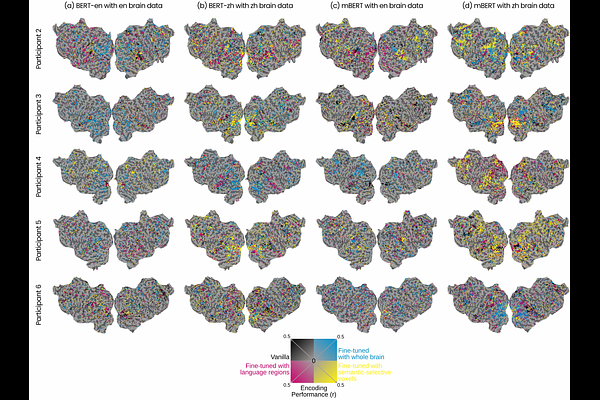Brain-Informed Fine-Tuning for Improved Multilingual Understanding in Language Models

Brain-Informed Fine-Tuning for Improved Multilingual Understanding in Language Models
Negi, A.; Oota, S. R.; Gupta, M.; Deniz, F.
AbstractRecent studies have demonstrated that fine-tuning language models with brain data can improve their semantic understanding, although these findings have so far been limited to English. Interestingly, similar to the shared multilingual embedding space of pretrained multilingual language models, human studies provide strong evidence for a shared semantic system in bilingual individuals. Here, we investigate whether fine-tuning language models with bilingual brain data changes model representations in a way that improves them across multiple languages. To test this, we fine-tune monolingual and multilingual language models using brain activity recorded while bilingual participants read stories in English and Chinese. We then evaluate how well these representations generalize to the bilingual participants\' first language, their second language, and several other languages that the participant is not fluent in. We assess the fine-tuned language models on brain encoding performance and downstream NLP tasks. Our results show that bilingual brain-informed fine-tuned language models outperform their vanilla (pretrained) counterparts in both brain encoding performance and most downstream NLP tasks across multiple languages. These findings suggest that brain-informed fine-tuning improves multilingual understanding in language models, offering a bridge between cognitive neuroscience and NLP research.